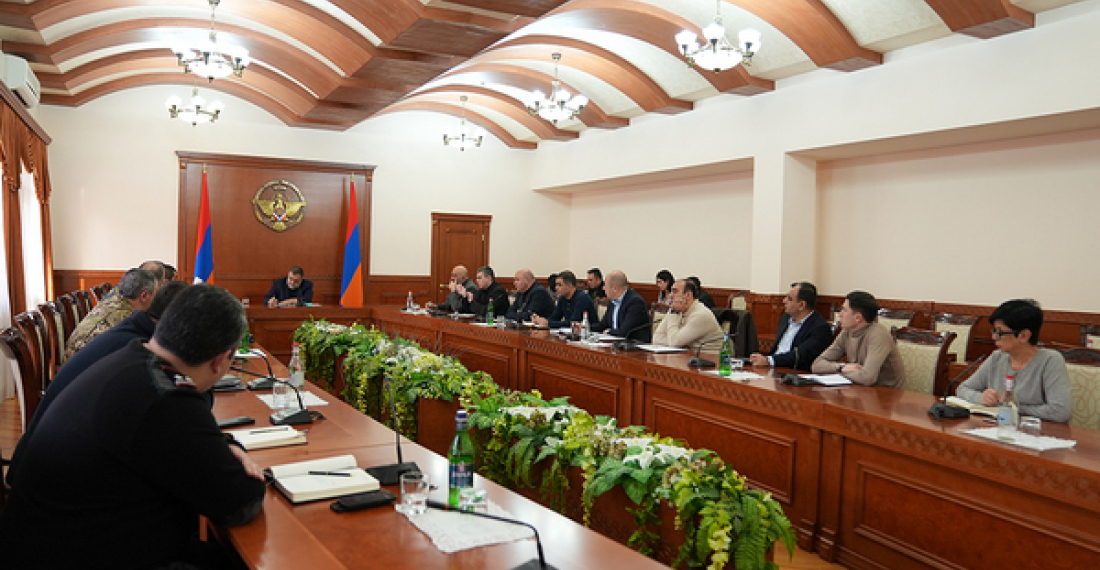The situation created by the presence of Azerbaijani activists on the Lachin corridor – the road that connects Armenia with the Armenian populated areas of Nagorno-Karabakh – has now been ongoing for nearly forty days. It is a situation full of symbolisms, which has put the leadership of the Karabakh Armenians under the spotlight.
The most important outcome so far is that it has proved the ability of the Azerbaijanis to hinder movement on the Lachin corridor at their will, and the lack of willingness (and probably of ability) of the Russian forces patrolling the corridor from stopping them doing so. This situation has created a huge pressure on the leadership of the Karabakh Armenians, who, it seems, have different ideas as to how to deal with the crisis.
Azerbaijan refuses to accept that the presence of its activists on the corridor is a blockade. They point out that vehicles of the Russian forces and of the International Committee of the Red Cross, move through the corridor daily. Patients have been transported to and fro in ICRC ambulances, and yesterday a group of children who had been in Armenia when the situation developed in December attending a sports event, were belatedly able to get back home in Stepanakert and re-unite with their families. But there is no denying that there is no “unhindered movement” on the Lachin corridor at the moment, and the international community is demanding that the present situation ends. The Armenians claim that the current situation is creating a humanitarian crisis, that people are starving, and that the Azerbaijanis’ end game is the ethnic cleansing of Nagorno-Karabakh from all Armenians. All reports indicate that no one is starving in Nagorno-Karabakh. But now rationing has been introduced and there are shortages of several items. Azerbaijan denies wanting to force the Armenian population of Nagorno-Karabakh out.
But there is one Armenian they definitely do not want to see there – Reuben Vardanyan, the Russian-Armenian businessman who in September had a Paulinian moment, renounced his Russian citizenship and moved to Nagorno-Karabakh where he was promptly appointed de facto prime minister. Since then he has shared power with the de facto president, Aratik Harutyunyan, who has kept control over the security system of the territory. There have been reports of tensions between the two, and things appeared to be coming to a head over the weekend. It now appears that relations have been patched up. Reports of early presidential and parliamentary elections have been denied, as have been reports that Vardanyan is to be dismissed. The loser from the latest intrigues appears to be Vitaly Balasanyan, the Secretary of the Security Council who was fired last week – the third most important figure in Karabakh, and crucially the one who had been the contact point with the Azerbaijanis over the last months. It seems that in Stepanakert two is a company but three is a crowd, and that in the present situation Balsanyan could not be accommodated.
The leadership of the Karabakh Armenians are now digging in and preparing of a long stand-off with Baku. This latest episode in the Nagorno-Karabakh saga has been conducted without violence – a positive fact given all the violence of the past. There is however no guarantee that such restraint can be continued going forward, so it is in everyone’s interest to resolve the current issues, and prepare for more substantive discussions on Nagorno-Karabakh’s future.



